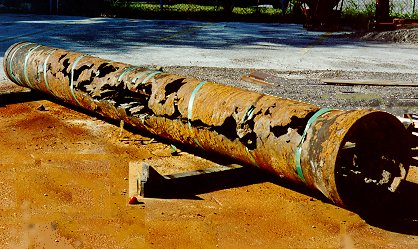The Role of Corrosion Inhibitors and Emulsifiers in Wastewater Treatment Plants
Need for advanced waste water management
The management of industrial and residential effluents is an important factor in large cities across the world. In India alone, the rate of urbanization has increased from 28.6% in 2003 to 31.99% in 2013. According to UN report, over 54% of the world population lived in urban areas in 2014 as compared to 30% in 1950. In America and Europe, about 82 % and 73% of the people live in urban areas respectively.
With the rising population and urbanization, the quest for better and efficient sewage cleaning systems is increasing. These systems must be designed and installed to withstand increased corrosion and handle more wastes.
Effluent systems are complex, sophisticated and must meet high level standards. The effluents are mainly comprised of sulfides, methane, organic substances, ammonia, oxygen, nitrates, phosphates and other materials. The combination of these chemical and organic matter results to unforeseen wearing of pipes, leakages and other damages.
Factors to consider when designing the systems
Convectional plants use a three stage process comprising of pretreatment, primary, secondary and tertiary stages. In all these stages, the sewage materials are moved through metallic or concrete pipes and steel tanks. The use of steel is more prevalent in small sewer plants.
These effluents have many residential and industrial chemicals that would otherwise corrode many pipe and large containment areas. Due to the large scale of operation, it is necessary to lower corrosion so as to reduce degradation, prevent system failure and minimize maintenance and operation costs. This is achieved through the use of flocculants, inhibitors and, antiscalants for different metallic components.

The role of corrosion inhibitors in sewer management
Inhibitors, when applied to sewage pipes and tanks react with these structures forming a surface layer that impedes further wear. The inhibitor adheres to the surface of the equipment forming an oxide that prevents further decomposition.
A wide range of these products such as passivators, cathode, organic, precipitation and volatile type can be used to effectively prevent deterioration on effluent systems. Passivators alter the corrosion potential of materials resulting to anions (chromate and nitrate). Cathode method prevent decay on equipment by hindering hydrogen discharge (include manganese, zinc and calcium).
Organic ones form a hydrophilic film on metal surfaces while the precipitating type forms a protective surface of precipitates. Common precipitates include silicates and phosphates. Lastly, volatile type comprise of organic salts that vaporize and condensers of metallic surface to prevent wearing out.
Useful properties of emulsions in these plants
Emulsion breaking is important process in the management of industrial and domestic wastes. Most agrochemicals, pesticides, surfactants, cosmetics, toothpastes are made using materials that are not miscible in water. Since they are present in sewage, they form emulsions that float on the water. This inert layer prevents chemical and physical waste action on the sewage.
To enhance the sewer cleaning process, these emulsions must be broken and spread all over the surface. This is achieved through emulsion breakers or heating the sewer. It is more convenient and cheap to introduce chemicals.
This article has been written by Govind Patel.